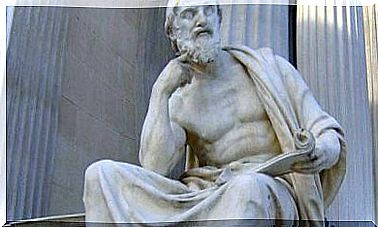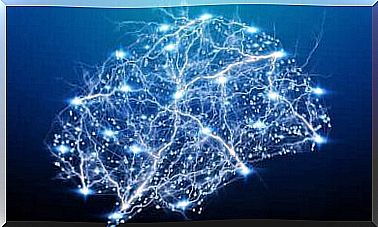A Psychological View Of Wisdom

Intelligence experts and psychologists have long been concerned with the concept of wisdom. There is a scientific definition that goes beyond the widespread conception of wisdom as the knowledge of our elders. So in this article we will discuss the psychological view of wisdom.
As an abstract concept, it can be difficult to study using the scientific method. However, many researchers have published interesting work on this.

What is the psychological view of wisdom?
Some people define wisdom as an expert knowledge of practical life. Many authors have tried to identify the specific components associated with wisdom. Although they differ slightly, the authors typically point out the following elements:
- Interpersonal skills. In other words, the level of knowledge, sensitivity and sociability in dealing with others. The interpersonal skills enable an individual to adapt to the needs of others and to have the most effective exchange possible.
- Communication skills and good judgment. The wisdom that people usually refer to is having knowledge and being able to give advice. Wise people can help others with their problems and find practical solutions that others cannot see for themselves.
- Understand. Wise people who can cultivate emotions and life experiences can understand and empathize with others.
- General competence. This is probably what people most commonly associate with wisdom. The wise are intelligent, cultured, knowledgeable about many areas, and how to impart that knowledge.
Does wisdom always include knowledge?
Experts tend to highlight two factors as the most important components of wisdom: exceptional understanding, and judgment and communication skills. As a result, despite their limited knowledge of the world, some people are very wise.
All of the above speak in favor of a concept of wisdom that is largely based on emotional and interpersonal skills. In other words, wisdom goes far beyond cognitive skills.
The psychological view of wisdom according to Holliday and Chandler (1986)
These two authors argued that wisdom is:
- Ingenuity
- dealing with others
- thoughtfulness
- wisdom
- intuition
- to know your personal limits
- reason
- logic
- experience
- a logical mind
- good problem solving skills
- to learn from mistakes
A wise person is someone who seeks information and uses it well.
Hollidays and Chandler’s definition tends to associate wisdom more with cognitive factors and abilities that enable an individual to find appropriate and qualified solutions to problems.
The psychological view of wisdom according to Sternberg (1985)
Sternberg, on the other hand, defines a wise individual as someone who is sensitive, sociable, has good judgment, good communication skills, and a keen understanding of life. In addition, according to Sternberg, a wise person is also a person who learns from their experiences and can see things from different angles.
In addition to all of these interpersonal and emotional skills, he argues that a wise person is intelligent, cultured, and generally competent.
How do scientists analyze wisdom?
There are ways to assess a person’s wisdom using standardized tests and qualitative procedures. These methods can be divided into two broad groups:
- Plan tasks. The person has to take a test, which is about making a decision at a certain stage in their life. When taking the test, the person answers out loud what they would do in the circumstances, how the decision would affect the long term, and what other information they would need to make their decision that is not included in the task.
- Review tasks. The person is instructed to review hypothetical paths taken by people at different times in their life. Her task is to review the decisions aloud and then reconstruct and evaluate what the people in question would say about their life choices when they reached old age.
Task example: Tadeo wants to get married
An example of a hypothetical situation that the subject would analyze is the following:
The subject would use this information to ponder aloud what Tadeo should be thinking about in order to make his decision. From Tadeo’s point of view, he would reconstruct the story, the different moments in the story, the possible reasons that led Tadeo to make this decision, and an evaluation of this decision.

Is It Possible To Teach People To Be Wise?
Many authors have spoken about the components of wisdom. However, there is a lot of disagreement among them. However, researchers are looking at those that are widely accepted to see how people can learn to improve their skills.
For example, when making decisions, it is important to understand: contextualism, relativism, and uncertainty. So far, researchers have only succeeded in educating people to improve relativism and the calm and restraint that goes with it. However, it still seems like a lofty goal to “train” someone to be wise.
What does the psychological view of wisdom omit?
However, one thing the standardized tests don’t seem to measure is the emotional factors of wisdom. But you can evaluate the intelligence better, for example logical and mathematical skills or spatial intelligence.
It is also important to remember that there is still not a broad consensus on the meaning of the word wisdom. The term is still open to interpretation and therefore difficult to measure. Due to the different definitions, the study results can be significantly biased.









